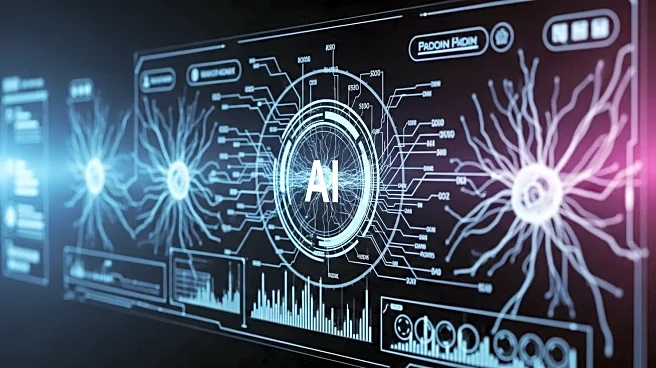What's Happening?
Anthropic, an artificial intelligence company, has agreed to a $1.5 billion settlement in a class-action lawsuit filed by authors who accused the company of using pirated copies of their books to train its chatbot, Claude. The settlement, pending judicial approval, could set a precedent in legal disputes between AI firms and content creators over copyright infringement. The lawsuit, led by authors Andrea Bartz, Charles Graeber, and Kirk Wallace Johnson, claimed Anthropic downloaded over 7 million digitized books from pirate websites, including Books3 and Library Genesis, to develop its AI models. The settlement includes a payment of approximately $3,000 per book for an estimated 500,000 works, and Anthropic has agreed to destroy the original pirated files.
Why It's Important?
This settlement is significant as it addresses the growing tension between AI companies and content creators over the use of copyrighted material for training AI models. The case highlights the legal and ethical challenges in the AI industry, particularly concerning intellectual property rights. The outcome may influence future legal actions against other AI companies, such as OpenAI, which face similar allegations. The settlement also underscores the financial risks AI companies face when using unauthorized data, potentially impacting their business models and investor confidence. For authors and publishers, the settlement represents a victory in protecting their intellectual property rights and could encourage more creators to pursue legal action against unauthorized use of their works.
What's Next?
The settlement awaits approval from a federal judge, with a hearing scheduled to review the terms. If approved, it may prompt other AI companies to reassess their data acquisition practices to avoid similar legal challenges. The case could also influence ongoing lawsuits against other AI firms, potentially leading to more settlements or changes in how AI models are trained. Additionally, the settlement may encourage legislative or regulatory actions to clarify the legal framework surrounding AI and copyright, balancing innovation with the protection of creators' rights.
Beyond the Headlines
The case raises broader questions about the ethical use of data in AI development and the responsibilities of tech companies in respecting intellectual property rights. It also highlights the potential for AI to disrupt traditional industries, such as publishing, and the need for new legal and ethical standards to address these challenges. The settlement may serve as a cautionary tale for AI companies, emphasizing the importance of transparency and accountability in their operations.









